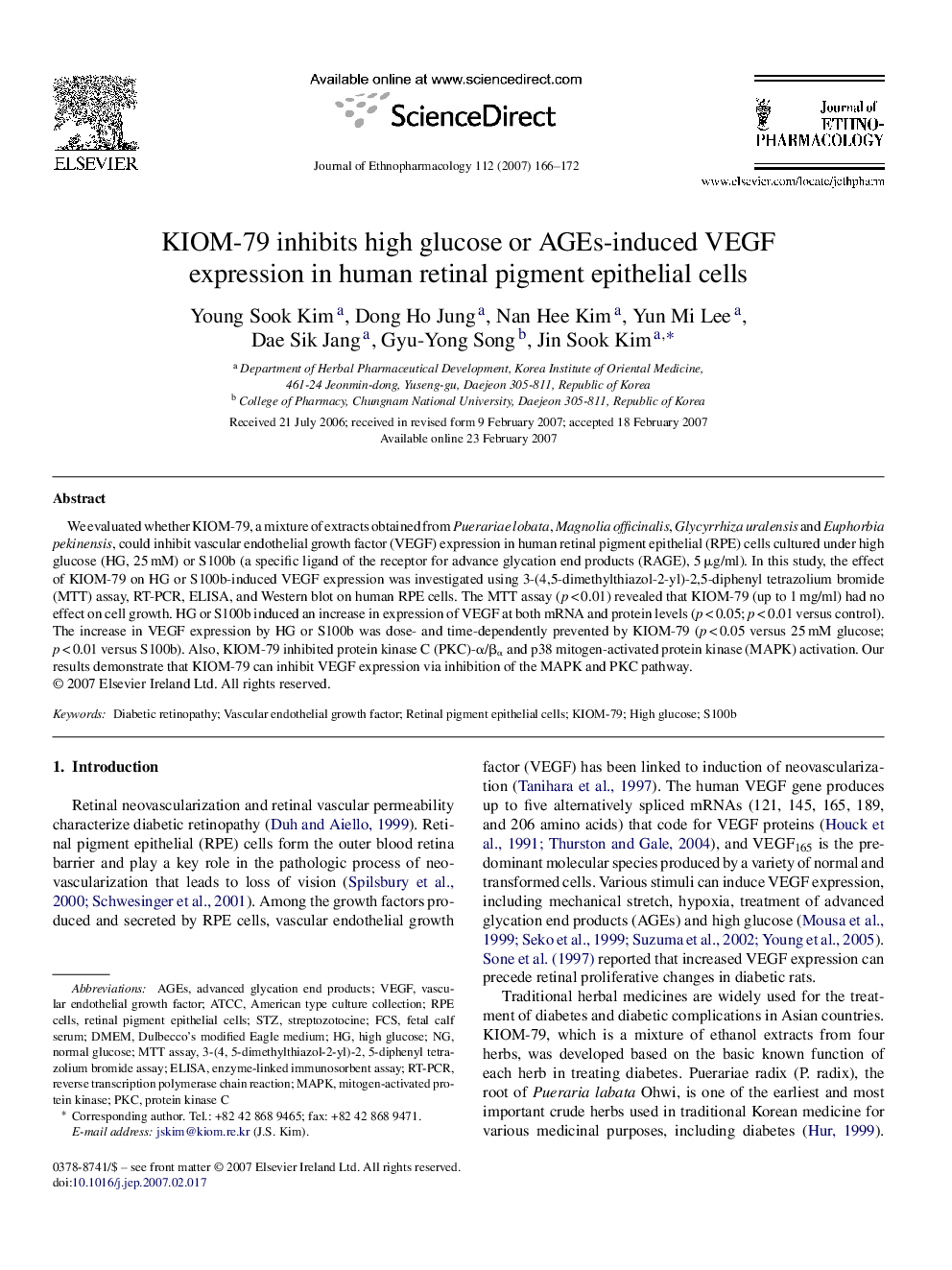| Article ID | Journal | Published Year | Pages | File Type |
|---|---|---|---|---|
| 2546927 | Journal of Ethnopharmacology | 2007 | 7 Pages |
We evaluated whether KIOM-79, a mixture of extracts obtained from Puerariae lobata, Magnolia officinalis, Glycyrrhiza uralensis and Euphorbia pekinensis, could inhibit vascular endothelial growth factor (VEGF) expression in human retinal pigment epithelial (RPE) cells cultured under high glucose (HG, 25 mM) or S100b (a specific ligand of the receptor for advance glycation end products (RAGE), 5 μg/ml). In this study, the effect of KIOM-79 on HG or S100b-induced VEGF expression was investigated using 3-(4,5-dimethylthiazol-2-yl)-2,5-diphenyl tetrazolium bromide (MTT) assay, RT-PCR, ELISA, and Western blot on human RPE cells. The MTT assay (p < 0.01) revealed that KIOM-79 (up to 1 mg/ml) had no effect on cell growth. HG or S100b induced an increase in expression of VEGF at both mRNA and protein levels (p < 0.05; p < 0.01 versus control). The increase in VEGF expression by HG or S100b was dose- and time-dependently prevented by KIOM-79 (p < 0.05 versus 25 mM glucose; p < 0.01 versus S100b). Also, KIOM-79 inhibited protein kinase C (PKC)-α/βα and p38 mitogen-activated protein kinase (MAPK) activation. Our results demonstrate that KIOM-79 can inhibit VEGF expression via inhibition of the MAPK and PKC pathway.
